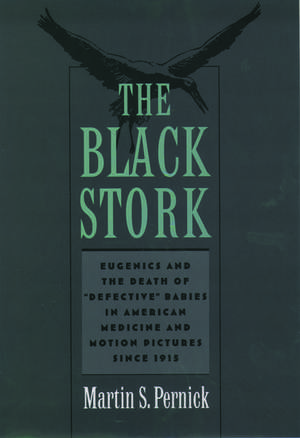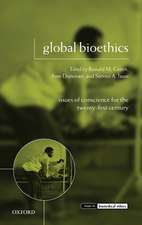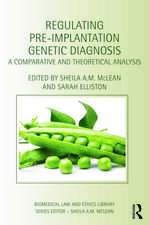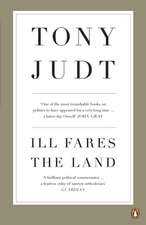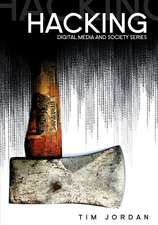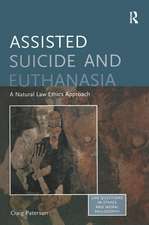The Black Stork: Eugenics and the Death of `Defective' Babies in American Medicine and Motion Pictures since 1915
Autor Martin S. Pernicken Limba Engleză Paperback – 12 oct 2000
| Toate formatele și edițiile | Preț | Express |
|---|---|---|
| Paperback (1) | 329.32 lei 32-37 zile | |
| Oxford University Press – 12 oct 2000 | 329.32 lei 32-37 zile | |
| Hardback (1) | 543.05 lei 32-37 zile | |
| Oxford University Press – 11 iul 1996 | 543.05 lei 32-37 zile |
Preț: 329.32 lei
Nou
Puncte Express: 494
Preț estimativ în valută:
63.01€ • 68.66$ • 53.10£
63.01€ • 68.66$ • 53.10£
Carte tipărită la comandă
Livrare economică 14-19 aprilie
Preluare comenzi: 021 569.72.76
Specificații
ISBN-13: 9780195135398
ISBN-10: 0195135393
Pagini: 328
Ilustrații: black and white photographs
Dimensiuni: 232 x 156 x 19 mm
Greutate: 0.55 kg
Editura: Oxford University Press
Colecția OUP USA
Locul publicării:New York, United States
ISBN-10: 0195135393
Pagini: 328
Ilustrații: black and white photographs
Dimensiuni: 232 x 156 x 19 mm
Greutate: 0.55 kg
Editura: Oxford University Press
Colecția OUP USA
Locul publicării:New York, United States
Recenzii
Advance praise: "The Black Stork is a most frightening tale of medicine run amok. Martin Pernick's narrative of Dr. Harry J. Haiselden's fin-de-siècle crusade for the euthenasia of `defective' children is a tale of the tangled path way of science in its pursuit of social ends. Haiselden's eugenic fantasy was a perfect race of `undamaged' humans. Since these questions have arisen in more sophisticated form with the knowledge achieved daily through the human genome project, Pernick's narrative is a strong warning about the slippery slope of determining what life is worth living."--Sander L. Gilman, University of Chicago
Scientific readers of this book are likely to be most interested in the insights they can glean for current biomedical debates.
excellent book ... Pernick gives us an essential historical perspective on two pressing issues: the possible abuses of new forms of genetic technology and physician-assisted suicide. Pernick's book breaks important new ground. There is little to criticize ... It is clearly written and copiously referenced.
an impressive study with broad implications for both historical and contemporary controversies ... he offers a highly original analysis of the complex relationship between the early public health movement and the development of American mass media ... a study rich in historical irony and nuance ... The Black Stork breaks new ground, for it successfully addresses contemporary concerns while also shedding significant new light on the early eugenics movement, the early film industry, and the surprising connections between the two.
an appetite-whetting prelude to his intended larger study of American health films ... This is a case study which forcibly demonstrates the advantages to medical history of taking popular media seriously. We can await his promised larger study with some eagerness.
Scientific readers of this book are likely to be most interested in the insights they can glean for current biomedical debates.
excellent book ... Pernick gives us an essential historical perspective on two pressing issues: the possible abuses of new forms of genetic technology and physician-assisted suicide. Pernick's book breaks important new ground. There is little to criticize ... It is clearly written and copiously referenced.
an impressive study with broad implications for both historical and contemporary controversies ... he offers a highly original analysis of the complex relationship between the early public health movement and the development of American mass media ... a study rich in historical irony and nuance ... The Black Stork breaks new ground, for it successfully addresses contemporary concerns while also shedding significant new light on the early eugenics movement, the early film industry, and the surprising connections between the two.
an appetite-whetting prelude to his intended larger study of American health films ... This is a case study which forcibly demonstrates the advantages to medical history of taking popular media seriously. We can await his promised larger study with some eagerness.
